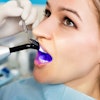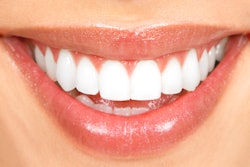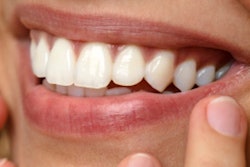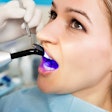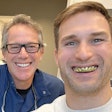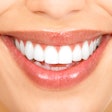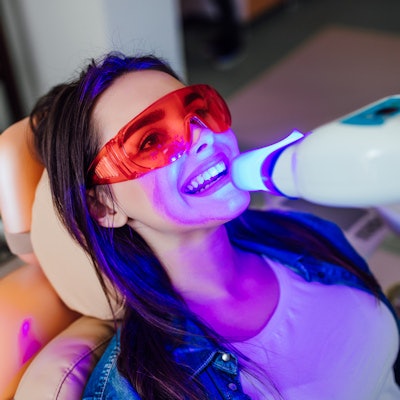
Hydrogen peroxide can whiten teeth safely and effectively, with its only major setback being short-term sensitivity in some patients, according to a May 13 session at the California Dental Association's CDA Presents The Art and Science of Dentistry virtual convention.
Hydrogen peroxide does not affect tooth structure, it is tolerated on soft tissues when the dose/area is within the soft-tissue peroxide capacity, and it works, said Paul Sagel, a research fellow in oral care at Procter & Gamble and the inventor of Crest Whitestrips and Crest Whitening Emulsions.
Products that contain "chlorite or PAA [phthalimidoperoxycaproic acid] make me nervous," he said, also noting that hydrogen peroxide exists in the body. "Peroxide for tooth bleaching is safe for use and ingestion."
Teeth whitening techniques and products have evolved over the years. As more new whitening products and devices flood the market, consumers are left with too many choices and lots of questions about product effectiveness and the side effects they may experience. Therefore, clinicians need to have a better understanding of the ingredients, efficacy, and potential risks of available whitening products.
In fact, some patients remain hesitant to brightening their smiles due to bad experiences with over-the-counter products from decades ago. For example, some people damaged their teeth during the 1980s using whitening products that contained hydrogen peroxide and citric acid and required long wearing times.
"It took the enamel off people's teeth," Sagel said. "It was the citric acid."
Though ingredients and use instructions have changed, about one-third of people who get their teeth whitened experience tooth sensitivity. Using a very high level of hydrogen peroxide or using a product for too long can cause gingival irritation, but most times the chemical compound is not the major cause of sensitivity, he said.
"Thickening agents used in products drive the sensitivity," Sagel explained. "Hydrogen peroxide is safe."
Using a blue light after applying a hydrogen peroxide product improves outcomes. When the light is applied with the right intensity for an appropriate period of time, it is effective and does not cause sensitivity, according to Sagel.
"Blue light really works, adding 30% to 50% efficacy to each treatment," he noted.
The only patients who are not good candidates for teeth whitening are those younger than 12.
"Teeth need to be fully erupted," Sagel said.


